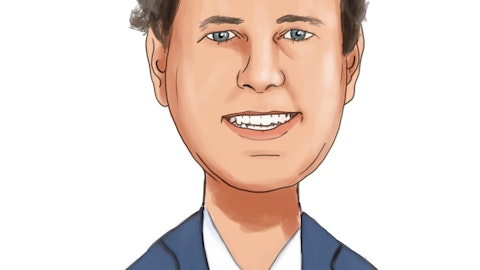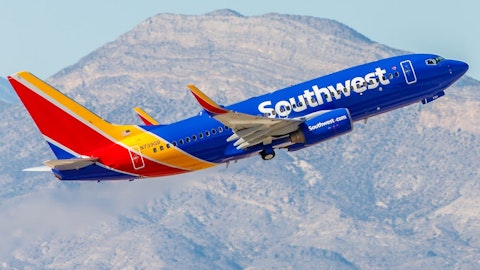Abhi Shah: Yeah. Fernanda, about United, we have a great commercial partnership with them as we do with JetBlue, with TAP, Air Europa and others as well. We continue that commercial partnership with connectivity in Brazil and in the U.S. We’re always looking at opportunities but there’s nothing in the short-term more than that a commercial partnership to announce.
Fernanda Recchia: Perfect, guys. Thank you very much.
Operator: The next question comes from Bruno Amorim, sell-side analyst from GS. Bruno, we will open your audio so that you can ask your question, please proceed.
Bruno Amorim: Hi. Good morning, everybody. So my question is on the unit revenue assumption for the year, as you laid out your assumption seems to be conservative indeed. What can you comment in terms of this flattish RASK going forward in light of falling jet fuel prices, have you been feeling the pressure from the market to lower unit revenues or since everybody, Azul included, needing to see higher margins going forward means that even under lower jet fuel prices, the pressure is now there. Can you comment on the dynamic please?
Abhi Shah: Yeah. Hi, Bruno. Abhi here. Sure, a couple of things, overall, I think the industry is very disciplined and I think the industry is going to be very disciplined. We certainly are doing our part and if you look at the fourth quarter of last year, we were actually down 3% in capacity domestic and that was because of fuel prices and the adjustments we made to our network. Looking ahead, this year, we’re going to grow about 15% total, but only about 6% to 8% domestic and so we’re not seeing the volume pressure, other the load factor pressure that would cause us to sacrifice the hard work that the industry has done in increasing average fares. I think the industry did a really good job when the war started last year, and I think that overall, we want to keep those gains.
The customer is used to these new prices, customers are not asking for lower prices, and in fact, as we talk today, we’re just coming off the last seven days, as John referenced, record booking revenues. And so, we’re seeing good momentum on the booking side, our intention certainly is to be very disciplined on the average fare side, not give back the gains regardless if fuel goes down or not. And I think the industry overall wants to recover the profitability in the best way possible.
Bruno Amorim: Thank you. And then if I may just a quick follow-up, so your guidance implies an EBITDA margin of at least 25%, right, BRL5 billion EBITDA, BRL20 billion revenues, should we think about the target as around 30%, which was the pre-pandemic level, is that the level that you are targeting for the next couple of years or are you thinking differently?
John Rodgerson: Yeah, Bruno. There’s no reason why Azul shouldn’t get back to those levels, right. And so we showed you what we did in the fourth quarter at a 25% EBITDA margin, we’re going into 2023 with lower fuel prices, a strong revenue environment, and so there is no reason why this business shouldn’t be there. So if we don’t get there, it’ll be a big disappointment and we’re not saying that we’re going to get there in 2023, but obviously that’s our target going forward, and we’re going to continue to go after it.
Bruno Amorim: Perfect. Thank you so much and congratulations.
John Rodgerson: Thank you.
Abhi Shah: Thank you, Bruno.
Operator: The next question now comes from Gabriel Rezende, sell-side analysts from Itau BBA. We will open your audio so that you can ask your question Gabriel, please proceed.





